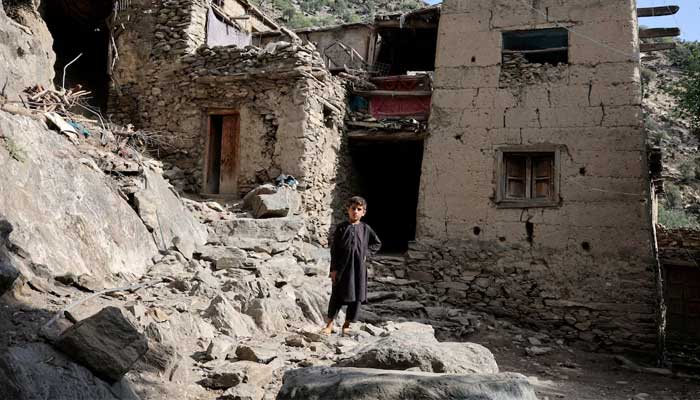Politics
US yet to approve any help following Afghanistan earthquake: sources

- Trump administration ends virtually all aid to Afghanistan in April.
- UN says initial donations came from multiple countries, but more needed.
- IRC needs Washington’s permission to send equipment to Afghanistan.
Nearly a week after an earthquake killed more than 2,200 people in Afghanistan and left tens of thousands homeless, the United States has not taken the first step to authorise emergency aid, and it was unclear if it plans to help at all, two former senior US officials and a source familiar with the situation told Reuters.
The lack of response by Washington to one of Afghanistan’s deadliest quakes in years underscores how President Donald Trump has forfeited decades of US leadership of global disaster relief with his deep foreign aid cuts and closure of the main US foreign assistance agency, said the source and the former officials.
The US Agency for International Development was officially shuttered on Tuesday.
The State Department on Monday extended its “heartfelt condolences” to Afghanistan in an X post.
As of Friday, however, the State Department had not approved a declaration of humanitarian need, the first step in authorising US emergency relief, said the former officials, both of whom worked at USAID, and the third source, speaking on condition of anonymity for fear of reprisal.
Such a declaration is usually issued within 24 hours of a major disaster.
The sources said State Department officials had considered recommendations for US disaster aid for Afghanistan. One former senior official said the White House also has considered the issue, but decided against reversing a policy of ending aid to Afghanistan.
When asked if the US would provide any emergency aid to Afghanistan following the magnitude 6 quake on Sunday, which was followed by powerful aftershocks on Thursday and Friday, a State Department spokesperson said: “We have nothing further to announce at this time.”
The United States was, until this year, the largest aid donor to Afghanistan, where it fought a 20-year war that ended with a chaotic US withdrawal and the Taliban’s seizure of Kabul in 2021.
But in April, the Trump administration ended virtually all aid — totaling $562 million — to Afghanistan, citing a US watchdog report that humanitarian groups receiving US funds had paid $10.9 million in taxes, fees, and duties to the Taliban.
Asked whether the US would provide emergency relief for earthquake survivors, a White House official said, “President Trump has been consistent in ensuring aid does not land in the hands of the Taliban regime, which continues to wrongfully detain US citizens.”
‘Stuck in storage’
United Nations aid chief Tom Fletcher said the Afghan earthquake was “the latest crisis to expose the cost of shrinking resources on vital humanitarian work.”
“Massive funding cuts have already brought essential health and nutrition services for millions to a halt; grounded aircraft, which are often the only lifeline to remote communities; and forced aid agencies to reduce their footprint,” he said in a statement on Thursday.
The Trump administration also has yet to respond to a request by the International Rescue Committee humanitarian organisation to send $105,000 worth of US-funded medical supplies following the first earthquake.
The materials include stethoscopes, first aid supplies, stretchers, and other essentials, said Kelly Razzouk, vice president of policy and advocacy for the IRC.
“The stocks are stuck in storage,” said Razzouk, who served on former US President Joe Biden’s National Security Council. “In recent memory, I can’t remember a time when the US did not respond to a crisis like this.”
The IRC needs Washington’s permission to send the equipment to Afghanistan because it had been funded by an unrelated US grant that the Trump administration had since canceled.
“Beyond the loss of life, we have also seen basic infrastructure and livelihoods destroyed,” Stephen Rodriguez, the representative in Afghanistan for the UN Development Programme, told reporters on Friday.
He said donations of money, goods, and services have come from Britain, South Korea, Australia, India, Pakistan, Iran, Turkey, and other countries.
“Far more is needed.”